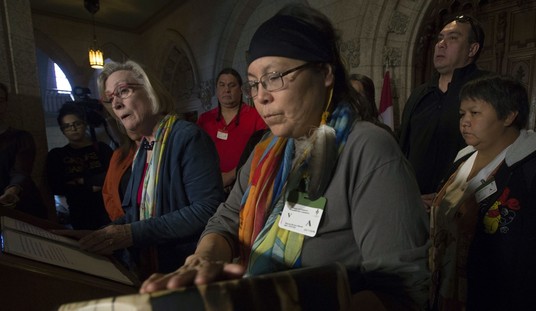WASHINGTON – Lawmakers and the Obama administration are increasingly optimistic an agreement can be reached that would reduce the government’s role in the mortgage finance market as proposals aimed to reform mortgage giants Fannie Mae and Freddie Mac continue to emerge.
In the aftermath of the financial crisis, the Federal Housing Finance Authority (FHFA) took control of Fannie and Freddie when they needed a $188 billion bailout. As a result, the government now guarantees the vast majority of mortgages in the U.S. Last year, the two provided support for approximately $1.3 trillion of the roughly $1.9 trillion in single-family home mortgages.
The two companies buy loans in the secondary market and package them into securities on which they guarantee payments of principal and interest, and then they sell the securities to investors.
Lawmakers fear this situation could put taxpayers on the hook in the event of a market crash. Republicans and Democrats agree that Fannie and Freddie have to go, but they disagree on the role the government should play in housing finance.
Sens. Mark Warner (D-Va.) and Bob Corker (R-Tenn.), both members of the Senate Banking panel, have drafted a bill that would wind down Fannie and Freddie within five years and establish a government-managed insurance fund, similar to the role the Federal Deposit Insurance Corporation plays in insuring bank deposits. This fund would collect insurance premiums and provide a backstop only after a certain amount of private capital dries out. The purpose of this is to incentivize companies securitizing mortgages to manage risk more carefully.
The Corker-Warner proposal creates a mutual organization to act as an entry-point for small lenders to the secondary market. In this secondary market, a bank makes a loan and sells it to a private investor who then securitizes it to other private investors.
The involvement of Fannie and Freddie in the mortgage market, and the government guarantee that goes with it, has helped maintain the availability of the American housing sector’s backbone: the 30-year fixed-rate mortgage.
This is why Maxine Waters, the top Democrat on the House Financial Services Committee, is putting forward a proposal that would maintain government involvement. Her plan also closes down the mortgage companies, but maintains government participation through a guarantee, paid for by the mortgage industry, to capitalize an insurance fund. Instead of Fannie and Freddie, her bill creates a new cooperative-owned mortgage security issuer, she said Tuesday in a speech at an event hosted by the Bipartisan Policy Center.
One of the criticisms of the Corker-Warner bill is that it requires private investors to take the first 10 percent loss of the credit risk on mortgage securities. The Waters bill would share the credit risk more flexibly by enabling the new regulator the ability to adjust the requirements when the private market constricts.
Another House bill, the PATH Act, introduced by Financial Services Committee Chairman Jeb Hensarling (R-Texas), would move more aggressively towards privatization of the mortgage market.
Hensarling’s plan would mostly privatize the housing finance market, leaving the Federal Housing Administration (FHA) and other government housing agencies to provide loans for low-income and first-time homebuyers.
The proposal would end Fannie and Freddie within five years and replace them with a National Mortgage Market Utility, a new nongovernmental, not-for-profit cooperative that would develop “best practices” for mortgage securitization. The new entity would not receive any federal government guarantees and would be barred from issuing securities.
The PATH Act faces stiff opposition in Washington. In addition, leaders of the national Mortgage Bankers Association and the Center for Responsible Lending said they favor the Senate proposal.
Opponents of the bill say it would mean the end of 30-year fixed rate mortgages. Critics also worry that the private sector is not capable of providing a reliable and adequate supply of housing credit without a federal backstop. They argue these mortgages are good for consumers but risky for banks because it is so hard to hedge against uncontrollable risks over so many years.
“The [Hensarling’s] proposal would badly hurt America’s middle class, ending the affordable 30-year fixed-rate mortgage, the lifeblood of our housing market,” Waters said. “It severely limits the availability of FHA backed mortgages and raises the costs of those mortgages significantly. By severely undercutting the FHA, the PATH Act is bad for community banks, consumers and taxpayers.”
The National Association of Home Builders (NAHB) said federal support is particularly important in continuing the availability of the 30-year fixed-rate mortgage. NAHB Chairman Rick Judson told the Senate Banking Committee Thursday that an effective housing finance reform plan must include a federal backstop to ensure that these mortgages remain affordable.
“There are serious doubts on whether a private housing finance system would be capable of supporting this type of product without some government backing,” he said. “At a minimum, the cost and terms of 30-year mortgages would be significantly less favorable under a totally private system and many fewer families would be eligible for home loans.”
Any housing finance reform faces the question whether private capital is ready and able to provide mortgage credit to U.S. homebuyers through a secondary market if Fannie and Freddie are closed.
Mark Calabria, director of financial regulation studies at the Cato Institute, is confident the private market will step in to replace the government’s role in the mortgage business. To back up his claim, he points to the existence of the jumbo mortgage market.
In most markets, Fannie and Freddie cannot back loans of more than $417,000, although the cap ranges as high as $625,000 in areas that are more expensive and up to $721,050 in Hawaii. Mortgages within these FHFA-mandated limits are known as “conforming loans.” Loans that exceed that amount, called jumbo loans, cannot be bought by Fannie and Freddie, and consequently are not guaranteed by the U.S. government. Instead, these loans have to be originated and then securitized by private financial institutions.
Calabria said if a government guarantee was essential we would expect the jumbo market to be relatively small compared to the relevant segment of the housing market. Instead, the jumbo loans, which have comparable interest rates to conforming loans, currently amount to 5 percent of the mortgage market even though homes exceeding the FHFA high-cost limit are only 4 percent of the market.
He said one effective way to start the phase-out process would be to reduce the limits for conforming loans, giving Fannie and Freddie a smaller share of the mortgage market.
President Obama has voiced his support for the Corker-Warner proposal. In August, the president outlined his proposal, which is largely in line with the Senate overhaul.
He said any measure he signed into law should “preserve access to safe and simple mortgage products like the 30-year fixed-rate mortgage.”









Join the conversation as a VIP Member